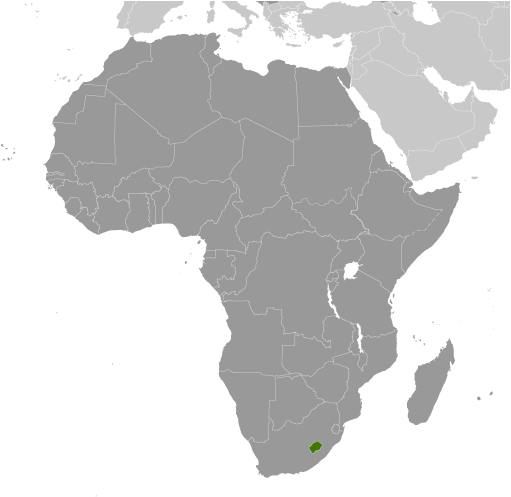Menu
LESOTHO
STATSCAPITAL: MASERU POPULATION: 2,067,000 LANGUAGE: ENGLISH BELOW POVERTY: 49% ACCESS TO WATER: 78% ACCESS TO IMPROVED SANITATION: 36% AVERAGE ANNUAL INCOME: $2,765 CHRISTIAN: 90% |
PARTNERED NGOWorld Vision Lesotho aspires to a Lesotho where children are protected, educated, food secure and healthy. We are called to partner with children, their communities, the church and strategic stakeholders to address root causes of poverty.
|
HIV IN LESOTHO |
NEWS |
|
AIDS constitutes an alarming threat to Lesotho and its people, and HIV/AIDS is not the only barrier to Lesotho’s economic development. Land degradation, capacity depletion, and economic decline are major obstacles to short- and long-term responses to humanitarian and development needs.
Prevalence HIV sentinel surveillance data from 2003 indicate that the epidemic in Lesotho is now the third highest prevalence in the world. Survey findings show that the 25–29 age group was most affected, with prevalence of 39.1%; for the 15–19 and 20–24 age groups, median prevalence was 14.4% and 30.1%, respectively. According to the Joint United Nations Programme on HIV/AIDS (UNAIDS), overall adult prevalence is estimated to be 28.9%. In the 2003 HIV Sentinel Survey Report, the Ministry of Health and Social Welfare (MOHSW) estimated that there were 100,000 children under 15 in the 10 districts of Lesotho who had lost one or both parents to AIDS. National response: The Government of Lesotho has taken concrete actions to address the epidemic through the declaration of HIV/AIDS as a national disaster, development of the National AIDS Strategic Plan, and the establishment of the Lesotho AIDS Programme Coordinating Authority (LAPCA) under the Prime Minister’s Office. The LAPCA was set up in 2001 to coordinate the multisectoral response to HIV/AIDS, but several factors have hindered it in fulfilling its strategic role, thus undermining its effectiveness and adversely affecting the national response. In 2005, the government passed a bill establishing the semi-autonomous National AIDS Commission (NAC) and National AIDS Secretariat (NAS) to coordinate and support strategies. Lesotho is in the process of drafting the next HIV strategy, for the period 2005 to 2008. Lesotho has committed itself to the World Health Organization goal of having 28,000 people on antiretroviral therapy by the end of 2005, and in May 2004 opened its first comprehensive HIV/AIDS center to provide antiretroviral therapy. Supported largely by donors; the Global Fund to Fight AIDS, Tuberculosis and Malaria (Global Fund); and international private organizations; local and international nongovernmental organizations (NGOs) and community-based organizations (CBOs) have provided the mainstay of the response to HIV/AIDS in the country, especially in the area of community mobilization. Most of these operations are small and localized to specific geographical areas in urban centers. The biggest challenge remains the establishment of national networks and civil society organizations on HIV/AIDS, most importantly among people living with HIV/AIDS and within the NGO network. A number of private companies are implementing successful HIV and AIDS workplace programs, such as LSP, the brewery, and some security companies. The apparel and textile industry, Lesotho's biggest private employer, has established an innovative sector-wide and comprehensive HIV workplace program. It is a public private partnership with the Government of Lesotho, buyers, employer and employee associations and donors. To date (May 2009) ALAFA (the Apparel Lesotho Alliance to fight AIDS)provides close to 90% of the 42,000 employees with prevention services, and up to 80% with treatment services. |
|
|
NORTHERNPATH PART OF LIT INTERNATIONAL
|
NORTHERNPATH COPYRIGHT 2001-PRESENT
|

